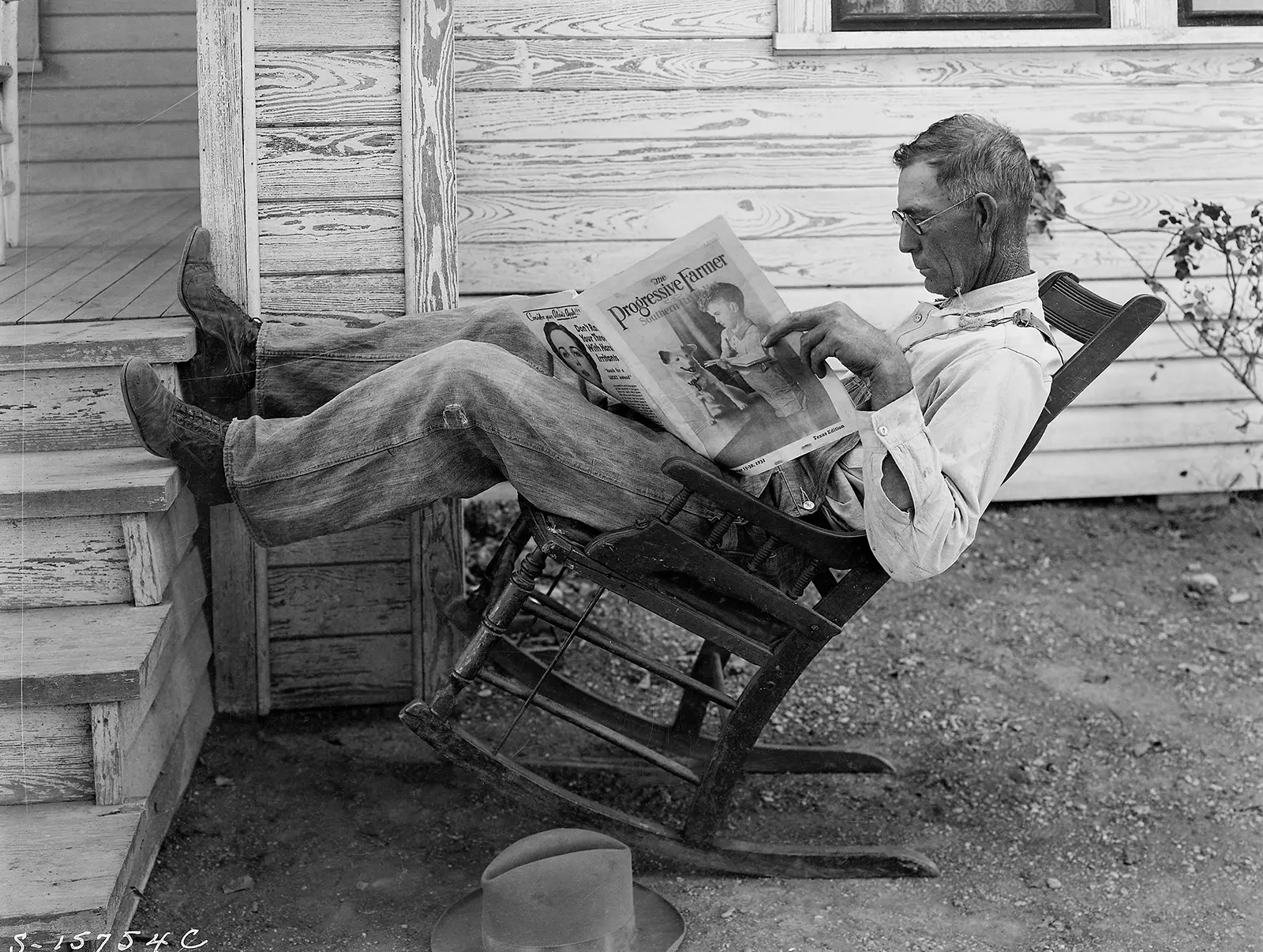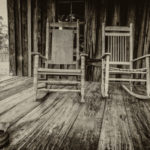“A Populism of Solidarity.” Amber Lapp goes to Oliver Anthony’s Rural Revival and explores the conditions for genuine, constructive populism: “‘Richmond’ without Rural Revival is explosive talk, a revolution of words. But Lunsford—like Andrew, like fellow “nobodies”—is an action guy. That’s why this weekend in Spruce Pine, money is being spent at local businesses, a house is being rebuilt, free packets of seeds are being distributed, and documentary footage to tell local stories is being filmed—with other behind-the-scenes efforts not advertised but ongoing. There is a populism that ends in bitterness, and there is a populism that finds a way.”
“Escaping the Brave New World.” Paul Kingsnorth gave an excellent talk here at Grove City College this week. It’s drawn from his new book, but it also covers new ground and outlines six ways we might live as humans in a machine age.
“Stewards of the Soil: Agrarian Life in a Calvinist Key.” Holly Stockley explores what a distinctively Protestant agrarianism might entail: “Agrarianism is not nostalgia but discipleship; not a retreat, but a covenantal witness. In its fields and households we glimpse the web of creation ordered under Christ, where neighboring is essential, not optional, and every furrow points toward the harvest of the New Creation.”
“The Connector.” Brad East profiles Leah Libresco Sargeant’s efforts to build a community that celebrates human dependence: “Much of Sargeant’s profile comes from her role as a convener; she models discourse across the political divide, by writing for such ideologically diverse publications, and encourages it in others. As Angela Franks, a professor of theology at Catholic University of America, said, ‘She is always trying to bring people together.’ Susannah Black Roberts, a writer and editor at Plough magazine, called it the gift of ‘salon-keeping.'”
“Do You Belong to a Story?” Nadya Williams “At one point in the novel, describing Andy’s memories of working on the tobacco harvest, Berry reflects: ‘Beauty was the goal—beauty and the satisfaction it gave.’ For Marce as well, at the beginning, it wasn’t just the sting of lost profits that caused the greatest pain, but the implied disregard of the beauty of his work. And there was the fear, of course, of losing the place where he and his generational stories were rooted. Can any of us still find such beauty of work done well, whatever it may be, today? Can we find out to which stories, hopefully beautiful ones, we ourselves belong?”
“The Future of The Free Press.” Bari Weiss outlines why she’s bringing The Free Press underneath the Paramount umbrella and reflects on the state of journalism today: “The Free Press uncovered an America hiding in plain sight. People who want to be surprised. People who want to learn. People who are open to changing their minds in the face of new facts. People who believe that curiosity is a virtue and who crave common sense in a world that feels upside down. People who resist the warmth of political tribalism even as they seek community with one another. People who want logic and wit, not conspiracy theories and demoralization.”
“RFK Jr. Once Targeted Pesticides. Why the MAHA Report Gave Them a Pass.” Amudalat Ajasa and Rachel Roubein describe the lobbying effort that spared pesticides from being targeted in the latest MAHA commission report: “Their efforts seemingly paid off. The Trump administration’s MAHA strategy document released last month did not call for restrictions on pesticides and instead said the EPA would work to ensure the public is aware of its “robust” review procedures, a marked shift from Kennedy’s past criticism of chemicals as contaminating the nation’s food supply.”
“The CDC Listened to Vaccine-Hesitant Moms in My Living Room.” Carrie McKean gathered some doctors, some CDC officials, and some vaccine-skeptical mothers for a conversation in her living room, and she reflects on the fate of expertise today: “By the end of the night, everyone looked a little dazed. We weren’t sure what had happened or what good it could do in the world. The divides we tried to reach across—between the pro- and anti-vax, those who trust public health agencies and those who don’t—are too big to overcome in my living room. But perhaps we each made some change in the world within, learning to see a person where once we saw only a problem. And in the weeks that followed, I came to think that was no small thing.”
“Localism Must Not Be an Ideology of Soil.” Addison Del Mastro parses different modes of localism in conversation with Yoni Appelbaum’s Stuck: “In cutting off mobility, we take away not only the choice to move but the choice to stay. Or, to put a slightly different emphasis on it, the choice to stay. Coerced localism is not localism, unless localism really does reduce to a bloodless, abstract ideology of ‘place’ and ‘roots’ without reference to the actual, real-life articles.”
“Kairos, Clocks & Motherly Love.” Sarah Reardon reflects on how having a child changed her orientation to time: “But the truth taught by the ads, the books, and the classroom clock is only a half-truth: the order of chronos represents only some of our experience. There is another order that pervades our mundane routines: a higher order of time, that of a “real time” or “divine time” that does not submit to manmade regimens. When my daughter was born, to my tremendous surprise, a way of experiencing time that is much more open to the unschedulable and unmeasurable overtook my plans for our new life together. And this we might call kairos.”






